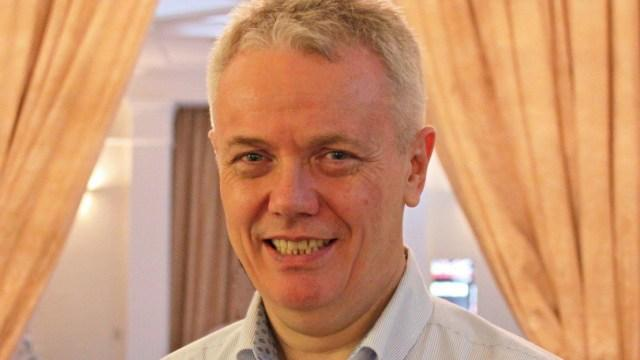Colin Mason, 63, who can vote in a general election for the first time since 2015, says he is unlikely to vote the Tories back into power

Colin Mason, who has lived in Japan for 23 years, will vote for the first time in the general election since 2015 under new voting rules (Photo: Colin Mason)
A British expat who will be voting in the upcoming general election for the first time since 2015 says his biggest concern is recent visa changes that make it harder to bring family to the UK.
Colin Mason, 63, who has lived in Japan for 23 years and is married to a Chinese woman, says it is unlikely he will cast a vote to keep the Conservative government in power.
“I doubt that I could be persuaded to vote Tory,” said Mr Mason, who runs an IT company in Yokohama, south of Tokyo.
He said he hoped to return to the UK, but changes to the earnings threshold British citizens must meet for their partners to secure a visa means he may have to use a large portion of his savings to bring his wife.
“It’s unfair not to be able to move family to the UK easily,” he told i, saying the “frozen” pension policy for UK citizens living outside Europe was “another thing that vexes me”.
The Government introduced “votes for life” in January, making all British citizens living abroad eligible to vote in a general election. Previously, people who had lived outside the UK for more than 15 years lost this right, but the Conservatives pledged to scrap the rule in their 2019 manifesto.
The new rule is believed to have extended the vote to an extra 3.5 million British expats, according to Government estimates.
Mr Mason said he previously voted for the Liberal Democrats in his constituency in Sedgefield, County Durham, which has been represented by Conservative MP Paul Howell since 2019, but was former Labour Prime Minister Tony Blair’s seat for 24 years.
“I suspect it will go back to Labour. I will be interested to see who stands in that constituency,” Mr Mason added.
Edward Vickers, 53, a university professor in Fukuoka on Japan’s Kyushu Island, said he was also most concerned about the rise in the earnings threshold to bring a foreign spouse to the UK, which could affect him and his Japanese wife, Aya Kiriake.
The Government announced the rise in December and the threshold went up from £18,600 to £29,000 on 11 April, with plans for it to rise to £38,700 in early 2025.
Professor Vickers, who previously lived in London and has been in Japan for 12 years, said he wanted the option of retiring in Britain, but believes he may struggle to reach the new income threshold with his pension.
He said Ms Kiriake has had issues with obtaining a visa in the past, when he returned to the UK in 2021 for a year as a visiting professor at University College London (UCL).
A spouse of an academic visitor can obtain a visa to accompany them in the UK, but Professor Vickers told i Ms Kiriake was rejected by the Home Office because the “confusing” rules deemed him a British citizen and not a visiting academic.
“If I had been a Japanese professor coming to sabbatical, no problem! But because I am British there was actually no visa that she could’ve applied for,” he said.
“There’s no appeal to this, and in the end we managed to get her leave to enter outside the rules but only because I knew a Liberal Democrat MP [who] very kindly intervened.”
Please share this story to help us raise awareness of the BOVF Key Issues


